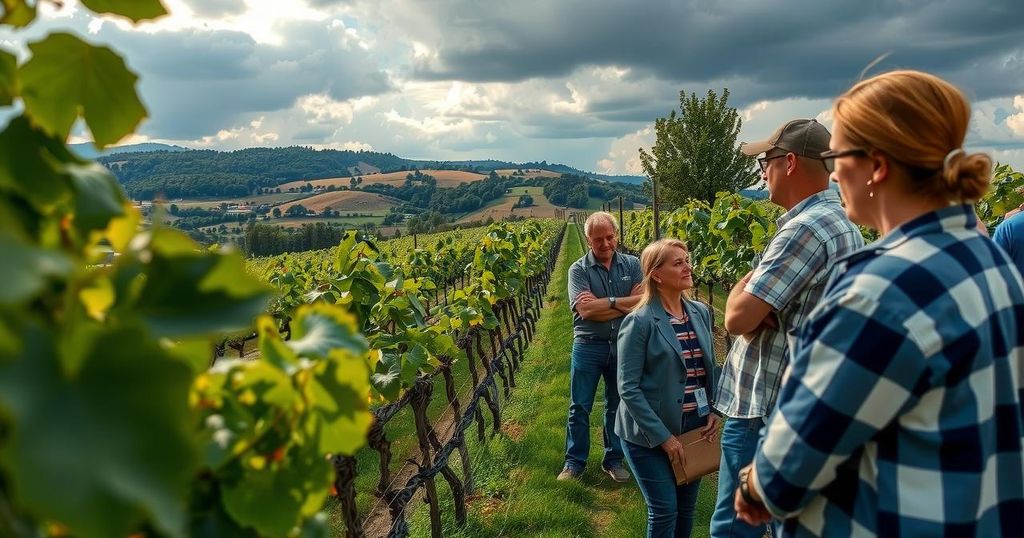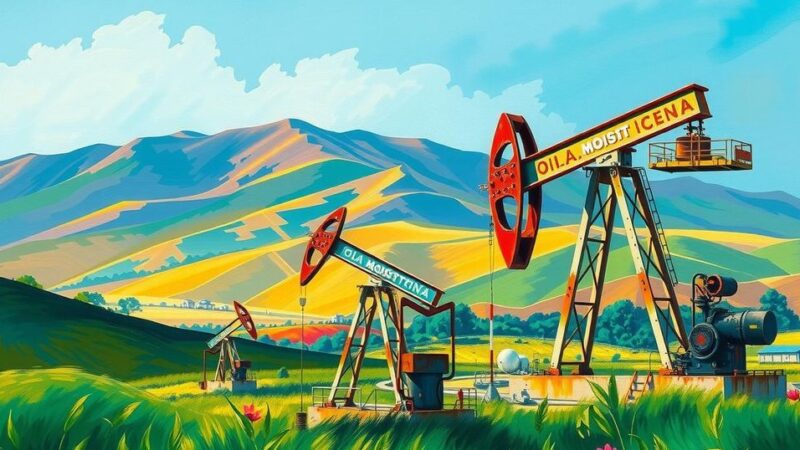This article discusses the global climate change conversations occurring at COP 29 in Azerbaijan, juxtaposed with local discussions on the impact of climate change on winemaking in Mendoza, Argentina. Highlighting insights from experts in viticulture, it emphasizes the challenges posed by climate variability to traditional wine production and the necessity of collaborative adaptation strategies.
The global discourse on climate change has intensified, particularly during the UN climate summit, COP 29, in Baku, Azerbaijan, where developing nations, alongside China and India, confront the leaders of the United States and Europe regarding significant financial commitments for climate mitigation. Concurrently, in Manaus, President Joe Biden became the first U.S. leader to visit the Amazon, emphasizing the importance of its biodiversity and declaring November 17th as International Conservation Day.
In Mendoza, Argentina, a region deeply intertwined with winemaking culture, discussions arose among local residents about the implications of climate change on their vineyards. Dr. Laura Catena, a prominent figure in this community and managing director of Catena-Zapata Wines, articulated the connection between wine and Argentine culture, stating that in Mendoza, almost everyone is connected to the wine industry.
The Catena Institute of Wine, in collaboration with Mendoza’s Cuyo National University, facilitated the International Terroir Congress, focusing on how climate change affects wine production. As noted by celebrated viticulturist Kees Van Leeuwen, while soil is significant in defining ‘terroir,’ climate conditions have a profound impact on the quality and characteristics of wine. Extreme weather patterns and rising temperatures pose challenges to traditional viticultural practices.
Greg Jones, a climatologist and vineyard owner in Oregon, highlighted the limited adaptability of grapevines to changing climates, suggesting that shifts in varietal choices may be necessary to sustain quality production. Even in established wine regions in France and Italy, such alterations can be culturally sensitive and difficult to implement.
Fernando Buscema, a researcher and winemaker, stressed that water scarcity is becoming increasingly critical, urging the need for efficient resource management and collaborative efforts across the industry to combat these challenges. The commitment to addressing climate change in agriculture, particularly in winemaking, underscores the intricate connection between environmental sustainability and economic viability in this cherished tradition.
The issue of climate change is a leading global concern, particularly affecting regions reliant on agriculture. This article focuses on the recent discussions surrounding climate policies in different parts of the world, highlighting the tensions between wealthy nations and developing countries. Specifically, it examines how these discussions impact winemaking in regions like Mendoza, Argentina, where climate change poses significant challenges to traditional practices. The insights of experts in viticulture and researchers emphasize the urgency of adaptation and collaboration to ensure the future of winemaking amid changing environmental conditions.
The convergence of climate change policies and the realities faced by agricultural communities, particularly in the wine industry, reveals critical challenges that must be addressed through cooperation between private and public sectors. The discussions at the COP 29 summit and the International Terroir Congress underline the need for urgent, coordinated actions to mitigate the impacts of climate variability on viticulture and ensure the sustainability of this cultural heritage. As experts advocate for adaptation strategies, the path forward demands collective efforts to safeguard both the environment and the livelihoods dependent on it.
Original Source: www.forbes.com






